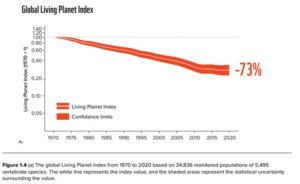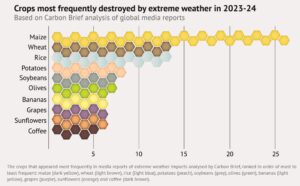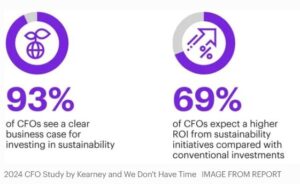Website – UKSSN Operations Group
LinkedIn – (3) UK Schools Sustainability Network Operations Group | Groups | LinkedIn
“Cheap, plentiful energy provided by renewables is an extraordinary economic opportunity” (Antonio Guterres, UN Secretary General)
This week from UKSSN Ops Group –
- Estates: Retrofit and TTN
- CPD: Department for Education Local Support Offer for Sustainability 💚
- Funding: Low Carbon Skills Fund
- Catering: A strategic priority
- CPD: Sustainability Support for Education
- CPD: Let’s Go Zero Carbon Literacy
- CPD: Waterwise Water Literacy
- CPD: Sustainability Events
- Celebrating sustainability: Sustainability Awards 🥳
- And finally…what are CFO’s saying about climate change
- Plus: Advice and Support
On Wednesday the UK Climate Change Committee (CCC) published its advice on the targets that should be set through the Seventh Carbon Budget. The CCC has advised that the UK will need to deliver an 87% reduction by 2040 (against a 2019 baseline) to meet its long-term net-zero by 2050 commitment. The pathway outlined by the CCC focuses on five key focus areas.
- Electricity, where electrification and low-carbon supply will account for 60% of emissions reductions by 2040. Renewable energy, electrification of transportation and heating, electric vehicles (EVs) and heat pumps will lead the way.
- Nature-based solutions, expanding woodlands and restoring peatlands.
- Demand reduction – enhance energy efficiency, reduce waste and enable lower-carbon lifestyles. Enable a shift away from individual vehicles to public and active transport, and to promote a reduction in meat and dairy consumption in favour of plant-based proteins.
- Engineered removals, such as bioenergy with CCS and direct air capture.
- Scaling low-carbon fuels and Carbon Capture and Storage (CCS), essential for sectors such as aviation, shipping and certain industries.
The Education sector has a vital role to play in points 1, 2 and 3; teaching and developing a strong green careers offer are critical for points 4 and 5.
Biodiversity Loss
The UK has also published its plan for how it will “halt and reverse” biodiversity loss this decade, as nations gather in Rome for resumed COP16 talks. Biodiversity loss is accelerating around the planet, jeopardizing countless ecosystems and species and, with them, the health and livelihoods of billions of people. The UK plan sees the UK commit to implementing a lengthy list of global targets within its borders, including protecting 30% of its land and seas, restoring 30% of degraded ecosystems, and halving the risk from pesticides by 2030.

Schools are really well placed to contribute to improving biodiversity, whether through education, through the Education Nature Park initiative, through improved grounds management techniques, or through work to improve nature connectedness.
Nexus solutions
More and more organizations and researchers though are appreciating the most powerful solutions are those at the nexus of climate, nature and people. In shifting the investment of time and resources to solutions at the ‘nexus’ they achieve outcomes well beyond what addressing climate, nature, or wellbeing alone could deliver. A question to ask ourselves as school leaders….should we have a climate plan, a wellbeing plan, a grounds plan, a people plan…or would one joined up plan deliver a far greater return? If we persist with separate strategic plans, how do we join them up?🤔
🏫Estates: Retrofitting🏫
Retrofitting the Built World: Practical Pathways to Sustainability – edie
The built environment accounts for around 25% of UK emissions. It is estimated that most of the improved performance needed to meet the 1.5C goals for 2050 must come from existing buildings. Given that almost 80% of the UK’s current non-domestic building stock (e.g. schools) will still be in use by 2050, it is clear that much must be done to update, improve and innovate current buildings. The link above is a report examining the key drivers and opportunities when it comes to retrofitting buildings to promote sustainability and energy efficiency.
Plus – here is the link to a recording of yesterday’s UKSSN online webinar where we focussed on retrofit opportunities in the Education sector. We had three fantastic speakers:
- Retrofit Action for Tomorrow (RAFT) who spoke about the importance of community engagement in retrofitting, involving staff and children, and who will be launching a new ‘Zero Carbon Action Builder‘ tool for schools.
- Chalmor who spoke about energy efficiency, specifically how to maximise the impact of LED lighting solutions (and avoid pitfalls).
- Aspire Academies Trust who spoke about their experience with Low Carbon Skills Fund (LCSF), Public Sector Decarbonisation Funding (PSDS) and the challenges and opportunities of major retrofitting projects.
We were also reminded of the great work of The Trust Network (TTN). TTN is a free peer support network committed to supporting school estates managers to create and maintain environments that enhance teaching and learning. As a member your trust will have access to a wealth of opportunities for free CPD, sharing best practices, exchanging knowledge, and when needed, uniting to voice concerns with the Department for Education and other national agencies. We will be speaking at the TTN National Conference in April.
Plus – a case study on retrofitting a domestic property. Many of us manage housing stock (e.g. Caretaker bungalows) with opportunity for retrofitting and energy efficiency.
🎓CPD: DfE Local Support Offer for Sustainability🎓
Develop your skills across the board with our comprehensive ISBL-aligned training — ISBL
The DfE are funding in-person, practical training sessions focused on technical skills and knowledge, career development and pathways, soft skills and capacity building. One of the eight sessions currently available is focussed on Sustainability. The sessions run for up to 3 hours and are available for up to 30 attendees per session. The training is available to trusts and regional network groups who are interested in facilitating a session for solely their own SBPs and/or colleagues within their region. This is a great opportunity to upskill and engage a group of school business leaders, estates, finance and operations professionals on sustainability and climate action.
If you are interested in finding out more information please email: training@isbl.org.uk.
It is also great to see ISBL lead on sustainability as part of improving School Business Leader capability and capacity for delivering operational excellence – What we’ve learned presiding over school business leadership professional standards for nearly a decade.
💰Funding: Low Carbon Skills Fund💰
Low Carbon Skills Fund: working with organisations to plan their net zero future | Salix Finance
The Low Carbon Skills Fund is run by the Department for Energy Security and Net Zero and provides grants for the public sector to engage specialist advice and skills needed to create robust heat decarbonisation plans. Public sector bodies that were unsuccessful in applying for previous phases of the Low Carbon Skills Fund or are considering future opportunities to develop a heat decarbonisation plan, can find support available to help develop strategy-stage heat decarbonisation plans from local hubs.
In collaboration with the Department for Energy Security and Net Zero and the Local Net Zero Hubs, Salix has also partnered with the Catapult, who have developed a set of two strategy-stage templates. Organisations can use these to develop a comprehensive strategy-stage heat decarbonisation plan.
Phase 6 of the Low Carbon Skills Fund (LCSF) will be announced soon. Start preparing now to avoid the last-minute rush. ReEnergise also offers free support to help you prepare your LCSF application and ensure it meets Salix’s standards – Meet with Kirstie Heneghan.
🍌Catering: A strategic priority 🍌
Mapped: How extreme weather is destroying crops around the world
Carbon Brief has published a new interactive map showing some of the impacts of extreme weather on global crops during 2023 and 2024. Using news reports in global media and other sources, the analysis identified 100 cases around the world where crops were damaged or destroyed by heat, drought, wildfires or other extreme events. Extreme weather is “expected to” drive up food prices throughout 2025, according to analysis covered by the Guardian. The research showed a “long-term trend towards more extreme weather events would continue to hit regional crop yields, causing price spikes”.

In December, the UK government said climate breakdown and related food price inflation was leading to a rise in the number of hungry and malnourished households.
The Food Foundation recently published their Broken Plate 2025 Report. ‘To afford the government-recommended healthy diet, the most deprived fifth of the population would need to spend 45% of their disposable income on food, rising to 70% for those households with children.’
High-quality catering is also crucial to improving health and learning outcomes of the school. Providing a nutritious lunch results in long-lasting health outcomes through improved diet quality and by reducing obesity rates. School meals also help children to learn by reducing children’s absences from school due to illness and improving concentration and attainment.
Catering isn’t simply a support function in a school, it is a strategic priority for improving attendance, progress, attainment, child health, you Climate Action Plan, budget planning, waste reduction and much more. ASCL is dedicating a workshop at their annual sustainability conference to sustainable catering – ASCL – ASCL Sustainability Conference 2025.
Plus: Another shout for fighting food waste with Olio, now working with over 400 schools. By sharing any spare food, schools can reduce food waste costs, operate more sustainably, and provide even more support to your community. With the introduction of ‘Simpler Recycling’ regulations on 31 March 2025, the best way to manage food waste is to eliminate it. You can also lead by example and inspire your students by taking a strong stance on food waste.
Email sophie.leader@olioapp.com to have a conversation about getting started with Olio and your school or multi-academy trust. Olio also work with major UK education caterers (like Aspens, Impact Food Group, Olive Dining, Chartwells and more), so you can speak to your caterer to learn more.
🎓 CPD: Sustainability Support for Education 🎓
Sustainability Support for Education
Join an online training session to learn more about DfE Sustainability Support for Education, how it can work for you and for the schools you are supporting. Sustainability Support for Education has been designed to support schools to build their climate action plan and take them forward step by step. The service enables settings to:
- Do it easily – everything you need to create your Climate Action Plan, in one place.
- Do it quickly – having set out the actions and selected resources to save you time developing your Climate Action Plan.
- Do it well – with resources checked by experts, so you can rely on them.
The one-hour session will be on Thursday 6th March 2025 from 4.30pm – 5.30pm. You can register here.
🎓CPD: Let’s Go Zero Carbon Literacy🎓
Free Carbon Literacy training from Let’s Go Zero
Starting 11 March, Let’s Go Zero are running brand new Carbon Literacy training programme which will support school staff members looking to boost their confidence and understanding of climate change and carbon emissions. The course will focus on key topics like recycling, pollution, climate change and how to inspire the next generation to act on environmental issues. You can also contact your local Climate Advisor for support in developing your climate action plan and reducing your emissions.
🌊CPD: Waterwise Water Literacy🌊
Water Literacy | Accredited Learning Experience
Despite the UK’s rain drenched reputation, demand for fresh water increasingly outstrips supply. This creates a state of water scarcity, which has damaging environmental impacts. Despite this, water remains an undervalued, regularly wasted resource. We need a wave of change, and this course will empower you to be a part of it. Water Literacy is a learning experience to inspire, motivate and educate professionals to play their part in addressing the environmental impact of water scarcity in the UK. It’s an informative, accessible and action-orientated course. Through a single day of learning, participants are empowered to embed change at their organisations, at home, and in their communities.
📅 CPD: Sustainability Events 📅
Conferences and events for climate and nature are great for CPD and building your network. We promote training on the website where all Members have facility to add local or regional events. Here are just a few more to look forward to –
- East of England Sustainability in Education Series with updates from DfE in Essex (26th March 2025) and Suffolk (2nd April 2025)
- The Trust Network national conference, Pelsall (23rd April 2025)
- Education Estates Net Zero Conference, LSE London (24th April 2025)
- Schools Sustainability Showcase, ARU Peterborough (22nd May 2025)
- ASCL Annual Sustainability Conference, Manchester (5th June 2025)
PLUS – School Resource Management training (by Entrust) on ‘A Sustainable Estate and Climate Action Plans‘ running in the new year.
🥳Celebrating Sustainability – Sustainability Awards🥳
A simple but often overlooked action we can all include in our plans is to talk about and celebrate climate action. The MAT Excellence Awards ‘Environmental Trust of the Year‘ shortlist has been published…good luck to the Trusts that are in the running!
The Department for Education Sustainability Award is now open for applications (closing date 24th April). The award recognises institutions that have taken innovative, measurable, and impactful steps to embed sustainability within their operations, curriculum, and community. The winning school or college will receive a £2,500 award to further support sustainability initiatives. Awards for sustainability are great for showing other schools and Trusts what can be achieved.
And finally….what are CFO’s saying about climate change
According to the report “Staying the course: Chief financial officers and the green transition,” (17 Feb 2025), a strong majority of CFOs remain committed to increasing climate investments. Sustainability is no longer viewed as a matter of corporate social responsibility or a niche concern; it is now a financial imperative driven by market opportunities, risk management, and evolving regulatory landscapes.

The top priorities for 2025 include:
- Sustainable materials – Reducing emissions by shifting to renewable and low-impact resources.
- Sustainable innovation & partnerships – Investing in clean technology and collaborations that drive green solutions.
- Energy management & waste reduction – Lowering costs through energy efficiency and resource optimization.
- Supply chain decarbonization – Integrating sustainability into sourcing and logistics operations.
Climate and sustainability are also referenced in this year’s Kreston report. The message from both CFOs (and major financial institutions) is clear: the future of finance is green. Now is the time for businesses and policymakers to accelerate—not retreat from—climate action.
Have a great weekend 💚
Sources of advice and support
- DfE sustainability hub: Sustainability Support for Education (with updated features for 2025 and updates in LinkedIn
- UKSSN: UKSSN Operations Group
- Education Nature Park: Home | Education Nature Park
- Climate Ambassadors: Climate Ambassadors: Turning Climate Ambition into Climate Action in Education | Climate Ambassadors
- Let’s Go Zero: UK Climate Change • Let’s Go Zero
- EAUC: The Platform – Environmental Association for Universities and Colleges, EAUC – United Kingdom
- FED: FED | Climate Change
- Good Estate Management for Schools – Good estate management for schools – Guidance – GOV.UK
- Sustainable Drainage (SUDS) – Susdrain – The community for sustainable drainage
- The Trust Network (TTN) – The Trust Network supporting good school estates & facilities management
References
HM Government Net Zero Strategy (October 2021, page 29)
‘Government is leading the way – embedding climate into our policy and spending decisions, increasing the transparency of our progress on climate goals, and providing funding to drive ambitious emissions reductions in schools and hospitals.’
https://assets.publishing.service.gov.uk/media/6194dfa4d3bf7f0555071b1b/net-zero-strategy-beis.pdf
Department for Education Sustainability and Climate Change Strategy (April 2022)
Sustainability and climate change strategy – GOV.UK
Streamlined Energy and Carbon Reporting (SECR)
Environmental reporting guidelines: including Streamlined Energy and Carbon Reporting requirements – GOV.UK
